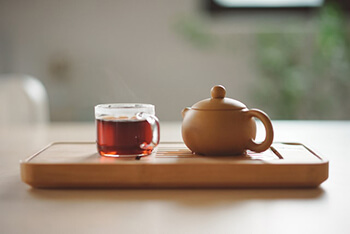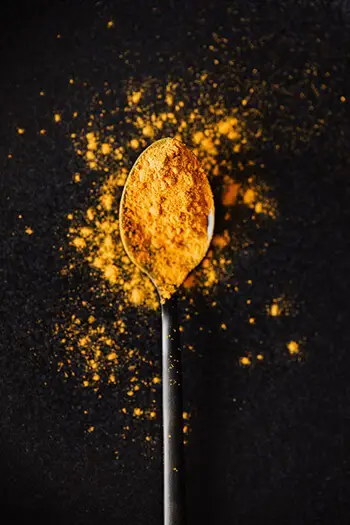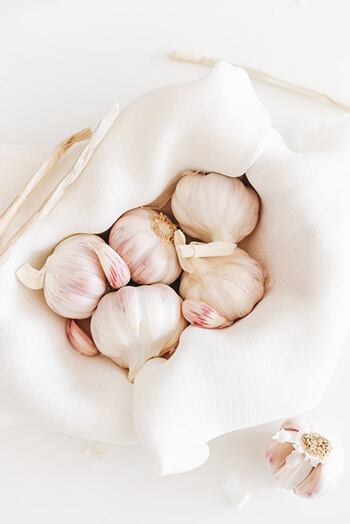Muscle pain, soreness and tension has the potential to cause intense daily discomfort and even put your life on hold. It can be felt anywhere around the body, and can range from mild to severe. You may feel muscle pain all the time, or it may worsen with movement.
Sore muscles aren’t just caused by intense workouts, injury or overuse. You can experience muscle pain and tension from seemingly doing nothing, as there are a number of factors that work behind the scenes to cause these issues.
Being dehydrated can cause muscle soreness, as can blood flow problems that arise from lack of exercise or illness. Being deficient in minerals like calcium, magnesium and potassium may also cause pain in your muscles. Muscle soreness can even be a side effect of certain medications, like anaesthetics and chemotherapy drugs.

Sore muscles aren’t always a bad sign. If you can put pain and tension down to a cause, and it naturally eases after one or two days, there’s nothing to worry about. But if you experience soreness that lasts over five days, it’s usually a sign of overexertion or damage.
We instinctively want to immediately relieve pain the moment we experience it, but often, muscle soreness is more effectively treated naturally over an extended period of time. Many short-term solutions, like over-the-counter pain medications, will only treat the soreness, and not the cause of the soreness itself. It’s better to combine short-term treatment with natural methods of pain relief that can be repeated over a number of days or weeks to alleviate the issue entirely.
With that in mind, here are our best picks for naturally relieving muscle pain, soreness and tension:
1. Epsom salt soak

Soaking in a bath full of warm water with a couple of scoops of Epsom salt has been a proven method for addressing aching muscles over the years. In water, Epsom salt breaks down into two natural muscle relaxants: magnesium and sulphate.
Experts say that when you soak in an Epsom salt bath, these relaxants get into your body through your skin. As well as relaxing the muscles, it’s also thought that Epsom salt helps to reduce swelling by drawing excess fluids out of muscle and joint tissue.
For treating muscle pains anywhere on your body, try soaking in Epsom salt for 15 minutes at a time, 3 times a week. About 2 cups, or around 475 grams, of salts per soak should be enough for you to notice the effects.
2. Apple cider vinegar
Many people find that either drinking apple cider vinegar or rubbing it directly on the area of the sore muscle or joint can help to relieve pain. This is because apple cider vinegar boasts a whole host of anti-inflammatory and alkalising properties, which helps to reduce muscle pain and inflammation.
In fact, this humble culinary condiment is so powerful that it’s even been proven to treat arthritis pain. It contains something called pectin, which is believed to absorb specific toxins that have built up and contributed to arthritis symptoms.
To make a diluted apple cider vinegar drink, you can mix it with water and honey to help with the sour taste, or simply take a tablespoon straight. If none of those options sound too pleasant, you could also add apple cider vinegar to your salads and other home-cooked savoury dishes.
3. Ginger tea

Drinking ginger tea is another way to relieve muscle pain. Research has found that daily ginger consumption reduces muscle pain caused by exercise, thanks to ginger’s anti-inflammatory properties. Experts also believe that ginger tea can soothe the symptoms of arthritis and prevent frequent flare-ups.
You can make your own natural ginger tea by grating some fresh ginger root into water and bringing to a boil on the stove. You’ll probably want to add a dash of honey and lemon juice to sweeten before drinking. If natural tea is too much fuss for you, you’ll still benefit from some muscle-relaxing properties from shop-bought ginger tea alternatives.
4. Hot and cold compresses
Applying hot and cold compresses to areas of muscle soreness and stiffness can help to alleviate joint pain. Heat increases blood flow to an area, which relaxes sore muscles and joints and relieves tension.
A cold compress can numb the area around the aching muscle or joint, which will temporarily relieve the pain. It can also reduce swelling and inflammation immediately.
You’ll probably want to switch between hot and cold compresses for the best results. While these won’t do much to treat the source of the issue, they’ll offer short-term pain relief and ease discomfort.

5. Turmeric
You might be more familiar with turmeric as a staple curry ingredient, but this bright orange spice contains an active compound called curcumin that is known for its anti-inflammatory and antioxidant properties. This makes turmeric is an excellent remedy for all number of health ailments, including joint and muscle pain. Studies have found that using turmeric is just as effective as using pain relievers like ibuprofen for people with arthritis.

You can add a couple of tablespoons of turmeric to hot water and drink it as a morning tea for the best pain relief effects. If you’re a fan of home cooking, you might also want to add turmeric to your curry, soup, rice and egg dishes for a healthy spice kick.
6. Garlic

Garlic is a good source of both sulphur and selenium, which have been found to help relieve joint and muscle pain. The sulphur in garlic is needed for healthy connective tissue and joint function, and helps to relieve inflammation. Studies show that selenium reduces joint swelling, tenderness, and stiffness in people with arthritis, who tend to have naturally lower levels of selenium in their blood.
7. Hydrating with water

As one of the most common causes of muscle pain is dehydration, it makes sense that hydrating with plenty of water is the simplest and most effective solution. Drinking water is beneficial in speeding up muscle recovery time after exercise and eliminating feelings of soreness. It does this by encouraging your body to remove toxins at a faster rate, helping to keep your muscles in proper working order.
Staying hydrated is simple – you just need to remember to take frequent sips of water throughout the day. It’s best to drink a full cup of water when you wake up to rehydrate your body. If you struggle to drink the recommended two litres of water a day, buy yourself a smart water bottle that can remind you when you need to take a drink.
- Effective for Joints and Muscles: Penetrex is the whole-body therapy cream you’ve been waiting for; trusted by over 2 million sufferers; offers a different kind of comfort
- The Penetrex Difference: Our proprietary blend of natural ingredients leverages the power of arnica, vitamin B6 and MSM to penetrate deeply for joint and muscle discomfort at the source
- Premium Experience: Penetrex is a non-greasy, non-sticky, non-staining, paraben-free, cruelty-free and vegan soothing cream without the burn, freeze or strong odor of other products
- See Why So Many People Trust Penetrex: Penetrex allows you to get back to doing the things you love
8. Magnesium oil
Magnesium acts to naturally block calcium, helping your muscle cells to relax after contracting. When your magnesium levels are low, your muscles may contract too much and cause symptoms such as cramps or muscle spasms. For this reason, magnesium oil is a proven natural remedy for relieving muscle pain.
9. Massage

Massages are far more than a method of mental relaxation. They help to stimulate blood circulation to an area, which speeds up healing.
Massages also relax muscle tissue, which alleviates painful contractions and spasms. They encourage nerves to transmit messages to and from the brain, which improves functioning of the muscles and organs. The simple act of touching the skin or applying pressure relaxes muscles, tendons, and ligaments.
If you can’t afford a professional massage, there are many at-home alternatives you can try out yourself. You can use a foam roller or a tennis ball to help relax your muscles, especially those on your back and legs.
Enlist in a willing partner to offer you a shoulder and neck massage, which can also relieve tension and ease pain associated with sleeping at a bad angle or staying in one position for too long.
10. Hot pepper rub
It might sound slightly terrifying, but capsaicin, which adds heat to peppers, has been used for years as a natural remedy to relive pain from arthritis, joint and muscle pain and general muscle soreness. When it’s used on the body, capsaicin causes a sensation of heat that activates certain nerve cells. This heating sensation reduces a type of chemical that acts as a pain messenger in the body, eliminating the source of the soreness.
To make your own DIY hot pepper rub, you’ll need half a teaspoon of cayenne pepper and a cup of warm coconut, olive or aloe vera oil. Combine the two ingredients together and apply the mixture to your areas of joint pain. It goes without saying that you should keep the rub away from your face, especially your eyes.
11. Rest

It seems obvious, but sometimes the best treatment for sore muscles is simply not doing anything at all. Your muscles never get a chance to heal if you’re using them 24/7.
In fact, you might be reaggravating an injury before it gets a chance to heal. If you rest up for a couple of days, general muscle soreness due to overexertion should pass on its own. For more intense pain and injuries, combining rest with another treatment will most likely offer your best chance of fast recovery.
It may be hard to rest a particular muscle if you need to use it every day, especially if it’s a leg or foot muscle. When necessary, speak to your doctor about taking time off work to allow the pain to heal naturally through relaxation.
12. Tart cherry juice
You’ve probably never tasted tart cherry juice in your life, but if you’re dealing with long-term muscle soreness, this one’s for you. Tart cherries, which contain powerful antioxidant and anti-inflammatory properties, have shown in studies to have a protective effect which reduces muscle damage and pain following vigorous exercise. Not only can tart cherry juice alleviate muscle soreness, it’s also proven to improve muscle strength when taken daily.
Conclusion
Muscle pain can be incredibly debilitating, especially if you suffer from a long-term condition like arthritis. By ensuring you have the appropriate means of natural treatment to hand, you’ll always be prepared to soothe sore muscles whenever you experience a flare-up.
Keep in mind that the treatments we’ve mentioned in the video are largely natural remedies, and injuries and more severe pain may need professional medical treatment.


